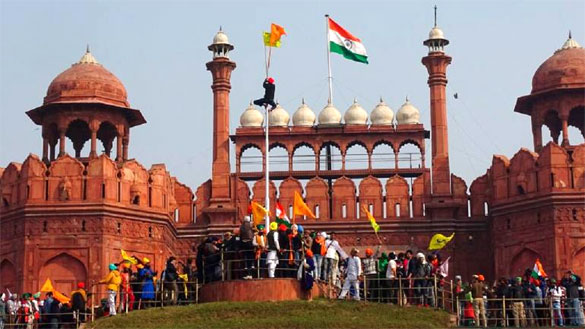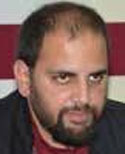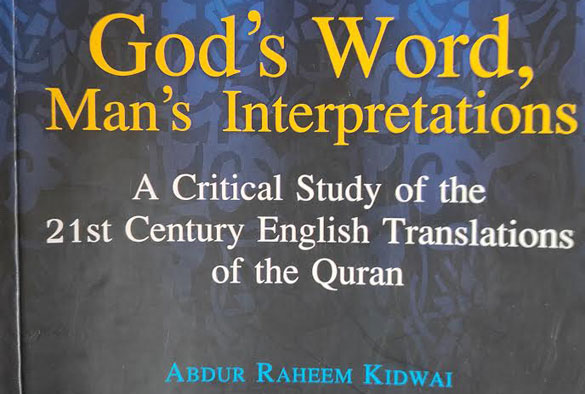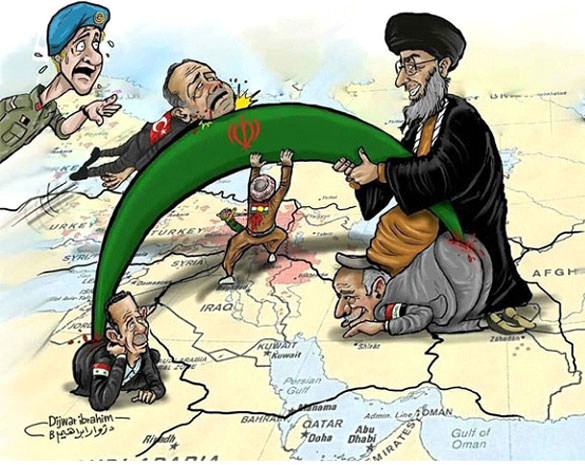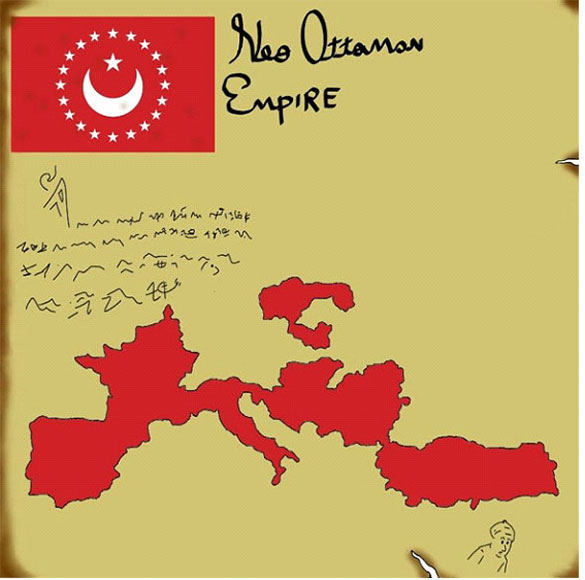New Age Islam Special Correspondent
30 January 2021
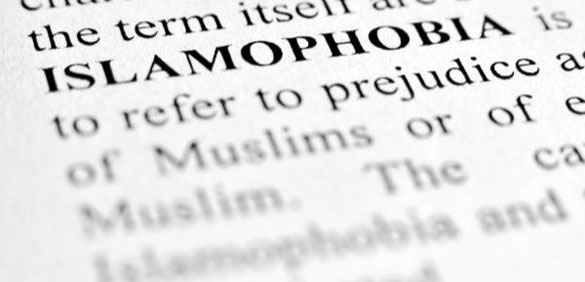
The Jihadist narrative dividing the world into Darul Harb and Darul Islam is completely baseless and unsupported by the Quran, Sunnah, and traditional interpretations of Islam. Therefore, Islamophobes have no right to claim the lie that the Jihadist narratives are based on traditional interpretations of Islam. This write-up will present some traditional proofs to refute the Islamophobic claim and in a bid to reform the Jihadist mentality which repeatedly encourages Muslims to migrate from their own country and join the Jihadist ranks.
-------------------------------------------------------------------------------
Also Read: Refuting Islamophobic Claims That Jihadists Represent Traditional and Mainstream Interpretations of Islam: Part 1- On the Hakimiyyah
-------------------------------------------------------------------------------
Both Darul Islam and Darul Harb are the jurisprudential terms (Fiqhi Istilahat) which were originally coined by the jurists of the early period of Islam but to deal with national transactions (Mua’amlaat) and relations (Ta’lluqaat) required by the then circumstances of the world. However, the conditions (Sharai’t) laid down by those jurists for land to become Darul Islam or Darul Harb revolved around what we simply describe in modern times as ‘basic religious rights’, such as freedom of faith and rituals (‘Ibadat)’. The land which granted such religious rights was declared ‘Darul Islam’, whereas the land which banned the basic requirements of Islam was treated as Darul Harb.
According to the Jihadist ideologues, Darul Islam is a land governed by the Islamic state, that is, the land where Islam should be the state religion and the laws of that land or country must be enforced in accordance with Islam, and Darul Harb is a land not governed by the Islamic state. The Jihadist narrative as such vehemently conflicts with the traditional version of Darul Islam and Darul Harb wherein the former term was applied to the land which granted basic religious rights, no matter whether or not the state religion of that land was Islam, and the latter term to the land which banned the basic religious rights such as freedom of faith and rituals.
-------------------------------------------------------------------------------
Also Read: Refuting Islamophobic Claim That Jihadists Represent Traditional and Mainstream Interpretations of Islam: Part 2 on Imperativeness of Reclaiming ‘Muslim Land’
-------------------------------------------------------------------------------
Despite this clear definition, the Jihadist ideologues hold that their understanding of this binary division of the world is based on the four jurisprudential schools, their jurists, and authorities in law. For example, Abu Muhammad al-Maqdisi, a Wahhabi-Jihadist cleric, “the most influential Jihadi Theorist” as per the Combating Terrorism Centre of the United States Military Academy (USMA), and best known as the spiritual mentor of the founding father of ISIS Abu Musab al-Zarqawi (the initial leader of al-Qaeda in Iraq) writes,
“And we hold the view of the jurists regarding the abode [Dar] wherein if the laws of Kufr were uppermost and the dominance therein was for the Kuffar [‘unbelievers’] and their legislations then it is Dar al-Kufr. This term is applied to the abode if the rulings of Kufr are uppermost, even if the majority of its people are Muslims, just as the term Dar Al-Islam is applied upon the abode in which the laws of Islam are uppermost, even if the majority of its inhabitants are Kuffar as long as they are submitting to the rule of Islam [Dhimmah]” [Al-Maqdisi, This is Our Aqeedah pp.25)
Al-Maqdisi believes that no state currently meets the criteria for Darul Islam. He asserts that the implementation of Sharia as state law is a precondition for Darul Islam (see ‘This is our Aqeedah’). This way his assertion inspires the jihadist supporters worldwide to declare war on the leaders of the Muslim majority countries without forgiving the civilians. As a result, the entire world has become a site for potential conflict.
We have mentioned above that the paradigm of Darul Islam and Darul Harb developed throughout Islamic history under political and jurisprudential definitions, though the binary division of the world as such is not mentioned directly in the Quran and Ahadith. These terms were devised by the early Muslim jurists, almost a century after the Prophet (peace be upon him) to suggest legal rulings, required by the challenges of the time.
However, as a result of the political fragmentation of the Muslim world, historical changes, and establishment of the new world order, the concept of Darul Harb has been completely affected and has almost no significance today among mainstream Muslims. Many contemporary Muslim jurists across the world regard the democratic countries as part of the Darul Islam or Darul Amn, arguing that Muslims therein can freely practice and proselytize their faith and creeds. They quote all of the four schools of Islamic jurisprudence, Hanafi, Shafei, Maliki, and Hanbali to support their argument.
-------------------------------------------------------------------------------
Also Read: Refuting Islamophobic Claims That Jihadists Represent Traditional and Mainstream Interpretations of Islam: Part 3 on the Jihadist Narrative Inciting Treachery towards One’s Country
-------------------------------------------------------------------------------
Below are some quotations that are taken from classical and traditional corpus of Islamic jurisprudence, which reject the Jihadist definition of the Darul Islam and Darul Harb, and suggest that the present states of the world cannot be declared Darul Harb.
In accordance with the traditional and classical scholarship, the countries that provide with the right to practice ritual prayers [Salah/prayer], the annual fast of Ramazan [Roza/Siyam], the building of mosques, the call to prayer [Azan], and the right to exhibit the wearing of Islamic dress and the performance of Muslim marriage cannot be declared ‘Darul Harb’. These countries, according to some contemporary jurists, are Darul Aman [the abode of peace], and to some, are Darul Islam [the abode where Islam is freely practiced].
For example, Abul Hasan al-Mawardi, the Iraqi judge and scholar of Muslim polity and law says,
The public acts of worship of Islam such as group prayers in mosques and calls for prayers are the criteria by which the Prophet, peace be upon him, differentiated between the Darul Islam [the Land of belief] and the Darul Harb [the Land of Disbelief].
Imam Nawawi, a popular classical Syrian scholar supports al-Mawardi’s definition of Darul Islam and writes in his great legal work ‘Rawda al-Talibin’,
“If a Muslim is able to declare his Islam openly and living therein (non-Muslim majority countries), it is better for him to do so, because this fulfils the criteria for a country to be Darul Islam”
In his book on Shafi’ii jurisprudence, ‘Al-Hawi al-Kabir, Imam Mawardi further says,
“Where a Muslim is capable of protecting and isolating himself, even if he is unable to proselytize and engage in combat, in such a case it would be compulsory for him to remain in this place and not emigrate. For such a place, by the fact that he is able to isolate himself, has fulfilled the criteria of Darul Islam”
The corpus of Hanafis, Shafiis, Malikis and Hanbalis obviously suggests that the open practice of Islamic acts such as ritual prayers, annual fast, call to prayers [azan], etc. are sufficient for the land to be considered Darul Islam even if it is a non-Muslim majority country. For example, the Shafi position is based on a Sunna (as narrated in a hadith) that fighting or Jihad should not take place in a region where the call to prayer (azan) is heard, as the free practice of Islam indicates that the land, in general, was not hostile to Muslims and Islam. Imam Bukhari and Imam Muslim report a hadith in this regard,
“Whenever Allah’s Apostle attacked some people, he would never attack them till it was dawn. If he heard the Azan [the call to prayer], he would delay the fight, and if he did not hear the Azan, he would attack them immediately after dawn” (Sahih Bukhari)
Imam Nawawi interprets this hadith,
This hadith is evidence that verily the call to prayer [azan] forbids invading a people of that area and this is an evidence of their Islam.
Besides we have also checked the opinions of the influential Indian jurists and scholars who are followed as pioneers by Indian Muslims including Sunni-Sufis or Barelvis, Deobandis, Ahl-e-Hadithis and Salafis. Without going through their opinions in detail, it is better and time-saving to see the conclusions of their detailed discussions respectively as follows;
In 1881, a person namely Mirza Ali Baig Badayuni sent a questionnaire consisting of three questions to Imam Ahmad Raza Barelvi, the first of which was: Is India Dar-ul-Harb or Dar-ul-Islam?
In response to this questionnaire, Imam Ahmad Raza wrote a pamphlet namely "E’laamul A’alam Bianna Hindustan Dar-ul-Islam" which was first published by Hasani Press Bareilly in form of treatise in 1927 and later included in “Fatawa Razviyya”, a collection of his Fatawa.
The fatwa begins with the following words:
“India is Dar-ul-Islam, not Dar-ul-Harb at all. This is based on the jurisprudential school (Mazhab) of our great Imam Abu Hanifa (may Allah bless him and grant him peace)” (Fatawa Razviyya, vol.14)
-------------------------------------------------------------------------------
Also Read: Refuting Islamophobic Claim That Jihadists Represent Traditional and Mainstream Interpretations of Islam - Part 4 on the Jihadist Narrative Justifying Suicide Bombings or Martyrdom Operations
-------------------------------------------------------------------------------
Maulana Amjad Ali Azmi, a very trustworthy and close spiritual caliph (Sufi Khalifa) of Imam Ahmad Raza also issued a similar fatwa in response to a question posed in a later period as follows;
“India is Darul Islam. It is a grave mistake to call it Dar-ul-Harb” (Fatawa Amjadiyya, Vol. 3, published and printed by Dairatul Ma’arif al-Amjadiyya, Ghosi, Maunathbhanjan, UP)
According to Maulana Ashraf Ali Thanwi, a pioneer among Deobandi School of Thought, India is not Dar-ul-Harb but Dar-ul-Islam. He writes;
“Generally, the meaning of Dar-ul-Harb is mistakenly understood that it is the place where war is obligatory; then in this sense, India is not Dar-ul-Harb, because war is not valid under the terms of the treaty” (Ashrafia, Ashrafia Publishing House, Bhoon Police Station, Saharanpur District)
He further writes: “And India is not Darul Harb also according to the Sahibayn (Imam Muhammad and Imam Abu Yusuf, the two great students of Imam Abu Hanifa), because although the rules of polytheism are practiced in it, the rules of Islam are also practiced without fear and danger. That both types of rules and practices freely exist in one land or one country does not make the country ‘Darul Harb’. Similarly, India is not Darul Harb as per the criteria and words of Imam Abu Hanifa” (Tahzeer al-Ikhwan, Maulana Thanwi, printed by Ashraf al-Matabi’, Thaana Bhawan, Saharanpur, UP)
In the biography of the Salafi Ghair-Muqallid cleric and Muhaddith (hadith scholar), Maulana Nazeer Hussain Bihari (d. 1902), the biographer Maulana Fazle Hussain Bihari (d. 1916) writes;
“He (Maulana Nazeer Hussain Bihari) never called India Dar-ul-Harb” (Fazl-e-Hussain, Al-Hayat Baad al-Maut, printed by Al-Kitab International Muradi Road, Batla House, Jamia Nagar, New Delhi)
The founder of Markazi Khilafat Committee (1919), Maulana Abdul Baari Firangi Mahali Lakhnawi (d.1926) writes,
“We declare India Darul Islam” (Maktoob Maulana Abdul Baari Firangi Mahali, printed by Akhbar-e-Mashriq, Gorakhpur)
The reason and condition whereby India was declared Darul Islam by the above-mentioned pioneers and influential clerics of Indian Muslims is that Muslims in India are permitted to learn and profess their faith and practice their religious rituals freely such as prayer (Namaz/Salah), the Call to Prayer (Azaan), Eidain prayers and annual fast etc. In obedience to the early jurists of Islam, these Indian jurists and authorities too did not make the condition of Islam as a State Religion for a country to become Darul Islam. This means that whether or not a country is governed by Islam as a state religion, if the country grants basic religious rights as pointed out above, it is Darul Islam and not Darul Harb. In the present world, the granting of basic religious rights is approximately part of the constitutional rights in all the countries, so there is no way for the Jihadist ideologues to justify their claim and invite Indian Muslims or otherwise to migrate. Besides, Islamophobes too should not claim the lie that he Jihadist narrative is based on the classical or traditional interpretations of Islam.
URL: https://www.newageislam.com/muslims-and-islamophobia/new-age-islam-correspondent/refuting-islamophobic-claims-that-jihadists-represent-traditional-and-mainstream-interpretations-of-islam-part-5-on-the-concept-of-darul-islam-and-darul-harb/d/124186
New Age Islam, Islam Online, Islamic Website, African Muslim News, Arab World News, South Asia News, Indian Muslim News, World Muslim News, Women in Islam, Islamic Feminism, Arab Women, Women In Arab, Islamophobia in America, Muslim Women in West, Islam Women and Feminism
